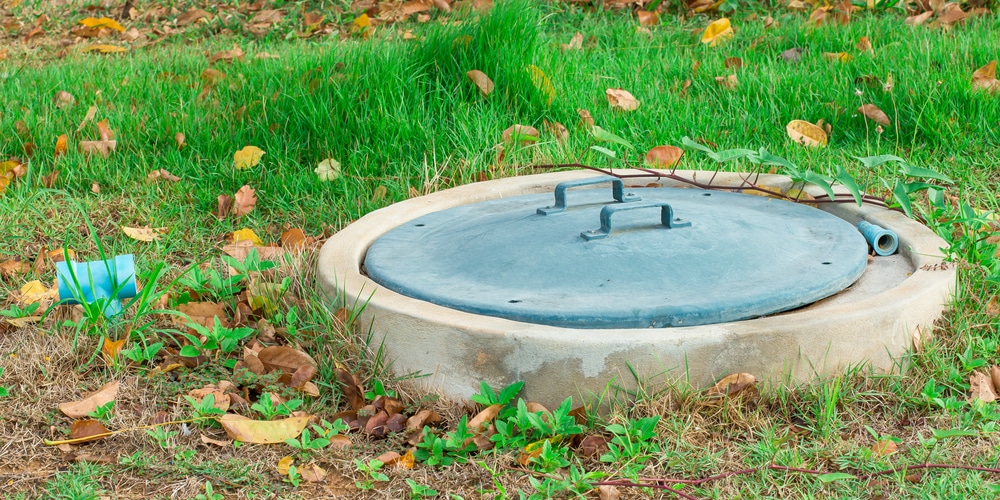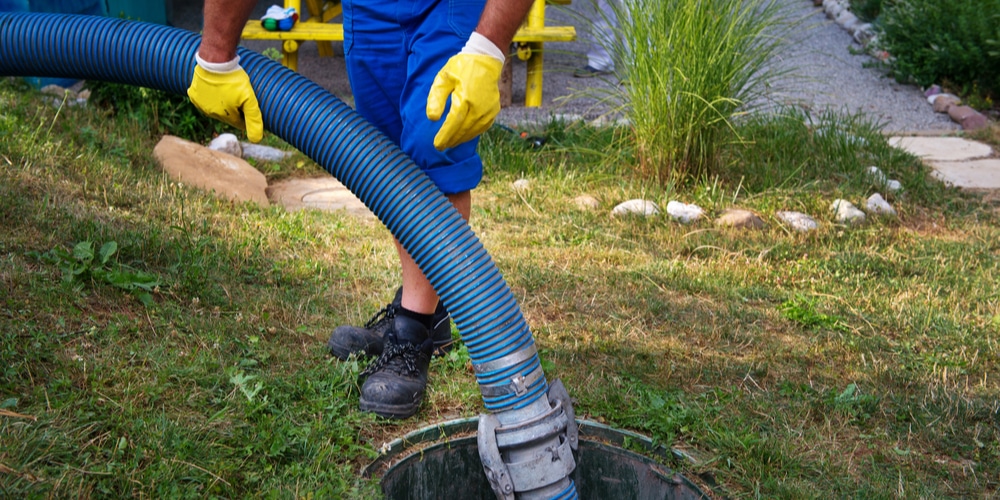Planting bushes, shrubs, or trees near your septic tank or septic drain field can lead to vexing problems down the road. Why? Because some of the root systems tend to spread wide and can cause significant damage to the septic tank itself or the lateral line.
However, you might also notice that your grass turns brown or dies over your septic tank.
Why is the grass dying around my septic tank? The topsoil covering your septic tank is not thick enough for a healthy root system.
So, your grass can only spread in that area by using stolons. And as soon as your lawn experiences drought, the spot over the septic tank is the first to turn brown and dry out.
Is Your Septic Tank Killing Your Grass? Here Is What To Do About It
Septic tanks release a little heat. And coupled with sun rays, that heat cause any moisture to evaporate quickly from the area over the septic tank. So, the goal is to help the soil retain more water without increasing the watering because the latter scenario only leads to sewage backing up into your home.
A simple solution is to add sand over the area covering your septic tank. The sand keeps the topsoil loose, which is essential to prevent clogging and other issues later on. Of course, you also have to have a grass type that spreads by stolons like Bermudagrass or St. Augustine.
Before you do anything, remove all weeds from the area. Pour and smooth out a layer of sand about 0.5 inches thick, spreading it to the edges with an outdoor broom.
Another option is to wait for the grass to turn brown and till your law. Please note that tilling can mess with the piping system if you do not know what you are doing.
Adding organic matter will lead to better moisture retention. But for the septic tank to work correctly, the moisture has to evaporate from the soil above it. So, it can be a risky solution that could lead to costly repairs.
The cheapest solution is to put new seeds over your septic tank area every spring and fall.
Do Not Leave The Area Above Your Septic Tank Bare
While the thought of your septic tank killing grass might be annoying, it is critical to realize that it is the way it is supposed to be.
Grass helps your septic tank keep the moisture level as low as possible. So, trying to achieve the opposite can only have a negative effect on your septic system.
Replacing your septic system can cost you around $5,000. Long story short, keep that area green and mowed.
Yellow Grass Over The Septic Tank
Soil type and texture are also relevant factors for moisture retention. Clay does not drain as fast as sand. So, your problem might depend on excessive water in the area. In this case, your grass turns yellow and wilt.
When water saturates soil for at least two weeks, it pulls oxygen out of the ground—the longer it remains saturated, the less oxygen remains.
The worst part is that soil composition determines how much water reaches every part of the lawn, not where the water enters the soil. For clarity, even if the water does not drop onto the septic tank from above it, you can have water stagnation issues. The water sits in the lowest layers of the soil, and it rises and falls after rainfall.
The soil above the septic tank is shallow to allow the sun to dry it faster. But if it keeps raining or you add anything else on top of it, water will not escape the area as intended. This is also why covering this spot with mulch is not always a good idea. On the other hand, the septic tank should not reach a freezing temperature. So, you should check with your city, local, or county codes to make sure you are within their guidelines.
Can I Put Artificial Turf Over My Septic Tank?
Synthetic turf can be an option for people trying to landscape their septic tank area. And while no septic tank killing grass scenario will unfold, filling the artificial turf might make it harder for water to escape.
Oxygen is essential to the drainfield. So, water must evaporate for the soil to get more oxygen. Artificial grass can tamper with this cycle, so you had better test the product you want to install before proceeding.

